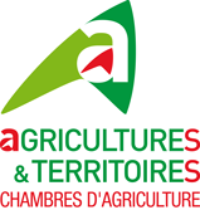Document type: news item fromItavi
Author: ITAVI
Preview: Joint Technology Units (UMTs) were set up by the French Ministry of Agriculture in 2006 (application of Article 91 of the Agricultural Orientation Law N°2006-11 of January 5, 2006 - Article D. 800-2 of the CRPM) to support innovation. These partnership structures, each of which is led by an agricultural technical institute and an academic research organization, are intended to promote synergies between actors in research and development through their tailored design, providing shared location and management, the co-construction of nationally relevant research and development, pooled technical and human resources, and mixed and complementary skills.
Research programmes must be built around a single theme that is an agreed priority for the sector and are conducted over a period of 3 to 5 years. The scientific and technical advances obtained within the framework of a UMT must be both usable and used in the short and medium term by those active in the sector."
BECOME: a multi-sector UMT bringing together Itavi, (Technical Institute for Poultry, Fish and Rabbit Farming), SYSAAF and INRAE
New scientific knowledge on animal welfare is guiding change in farming systems and practices. #Poultry, #rabbits and #fish are affected by these changes. The BECOME UMT will explain and communicate the concept of welfare, with a view to its adoption by as many people as possible. It will also seek solutions that can be adapted to different market conditions and consumer profiles.
The UMT BECOME proposes to combine the skills of academic #research and #technical know-how on the Nouzilly site near Tours, to improve small-animal welfare in response to public demand, while supporting markets, the #competitiveness of the sector and the #environment.
The work of the UMT falls into two areas:
1) to propose solutions to improve the welfare of poultry, fish and rabbits
2) to conduct a socio-economic study of the motivators for purchases and the impacts of the proposed solutions on the sector.
Numerous research projects will be developed in the areas described. The results will be communicated to the industry, the scientific community, the educational system and government via different channels (technical data sheets, videos, symposium, webinar, etc.) to ensure they are fully embedded in future actions.
ITAVI contact: Angélique TRAVEL, Food Health POULTRY and RABBIT - travel@itavi.asso.fr
ITAVI Press Office : Anne Plantié-Roux and Valérie Fleury, ITAVI Communications Officers






